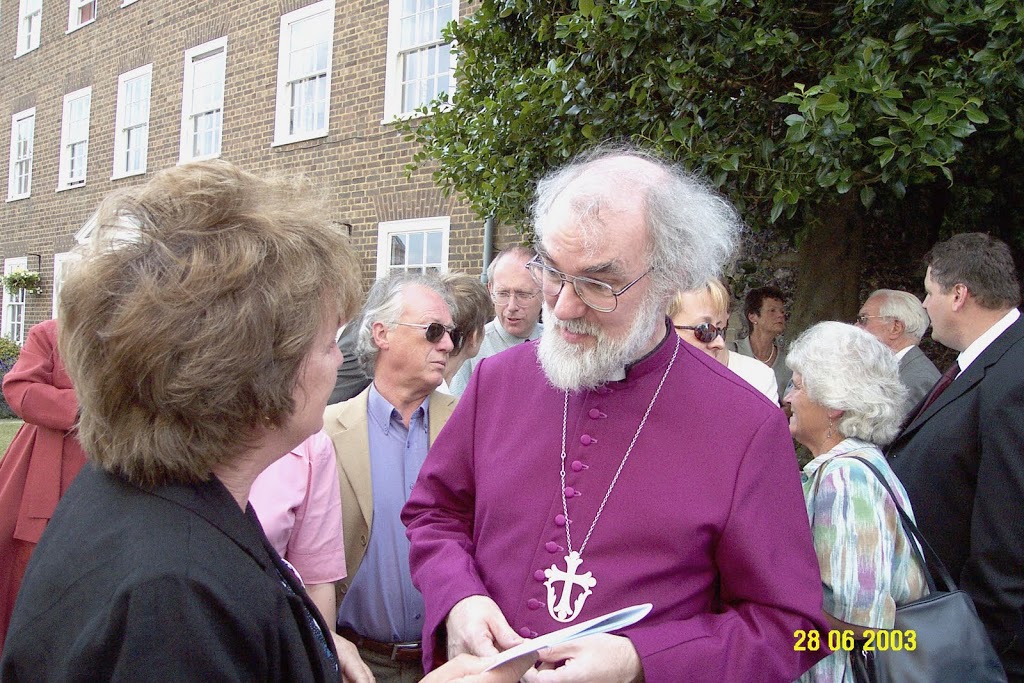 Yesterday the Archbishop of Canterbury (AOC) stirred the hornet’s nest. His remarks on politics, society and the priorities of the coalition government have given rise to lengthy columns in newspapers, hours of debate on radio and television, and innumerable tweets on twitter. I will not comment on his views, but observe that very few people actually read what he said and instead reacted to what they thought he had said, or had heard others say what he said, or on a phrase or two taken out of context.
Yesterday the Archbishop of Canterbury (AOC) stirred the hornet’s nest. His remarks on politics, society and the priorities of the coalition government have given rise to lengthy columns in newspapers, hours of debate on radio and television, and innumerable tweets on twitter. I will not comment on his views, but observe that very few people actually read what he said and instead reacted to what they thought he had said, or had heard others say what he said, or on a phrase or two taken out of context.
Similarly, I was intrigued by this morning’s reporting of last night’s interview with the Duke of Edinburgh to mark his 90th birthday. I watched the programme and remember him being asked if he thought he had passed his sell-by date. He said “no”, but that he would need to wind down some of his responsibilities since he was getting older, slower and the memory was not working as well as it used to. That is what I heard, but this morning on Radio 4 he was quoted as saying he was past his sell-by date. He said nothing of the sort. Having heard his views on the media last night I doubt he would be surprised at this mis-reporting, and I also suspect that the AOC is unsurprised at his treatment. This got me thinking about the way Jesus was treated and what our expectations should be.
Jesus was misquoted. He had things he said taken out of context and used against him both by those who heard him and those who merely heard second-hand. To take just one example, Jesus spoke about the temple. He said,
“Destroy this temple, and I will raise it again in three days.” (John 2:19 NIV)
He was talking about his body, but let’s look at how this saying was interpreted. It was used against him at his trial,
“We heard him say, ‘I will destroy this man-made temple and in three days will build another, not made by man.’” (Mark 14:58 NIV)
Several problems here. He did not say “I will destroy”, or that he would “build” another one “not made by man”. His saying has been twisted and added to. What about at his crucifixion?
“Those who passed by hurled insults at him, shaking their heads and saying, “So! You who are going to destroy the temple and build it in three days, come down from the cross and save yourself!”” (Mark 15:29–30 NIV)
Jesus did not say he would destroy the temple, or re-build it. How galling it must have been to hear these false allegations – especially at his most vulnerable moment in agony on the cross. If the words of Jesus were twisted and taken out of context why should we Christians be surprised when the same thing happens to us? Is one of the reasons we hesitate to share our faith the fear we will be misunderstood? The message we have is life to some and death to others. As Paul says,
“But thanks be to God, who always leads us in triumphal procession in Christ and through us spreads everywhere the fragrance of the knowledge of him. For we are to God the aroma of Christ among those who are being saved and those who are perishing. To the one we are the smell of death; to the other, the fragrance of life.” (2 Corinthians 2:14–16 NIV)
We are aroma-spreaders, but we cannot tell whether the next person who sniffs our message will think it the smell of death or the aroma of life. The response of others is not within our control – just ask the AOC or the Duke. But the spreading of our true convictions is always in our own hands. Jesus was misunderstood, but his mission was successful. Let us be faithful that as we speak and spread the truth God will make our efforts successful to His glory.
 Yesterday the Archbishop of Canterbury (AOC) stirred the hornet’s nest. His remarks on politics, society and the priorities of the coalition government have given rise to lengthy columns in newspapers, hours of debate on radio and television, and innumerable tweets on twitter. I will not comment on his views, but observe that very few people actually read what he said and instead reacted to what they thought he had said, or had heard others say what he said, or on a phrase or two taken out of context.
Yesterday the Archbishop of Canterbury (AOC) stirred the hornet’s nest. His remarks on politics, society and the priorities of the coalition government have given rise to lengthy columns in newspapers, hours of debate on radio and television, and innumerable tweets on twitter. I will not comment on his views, but observe that very few people actually read what he said and instead reacted to what they thought he had said, or had heard others say what he said, or on a phrase or two taken out of context. 